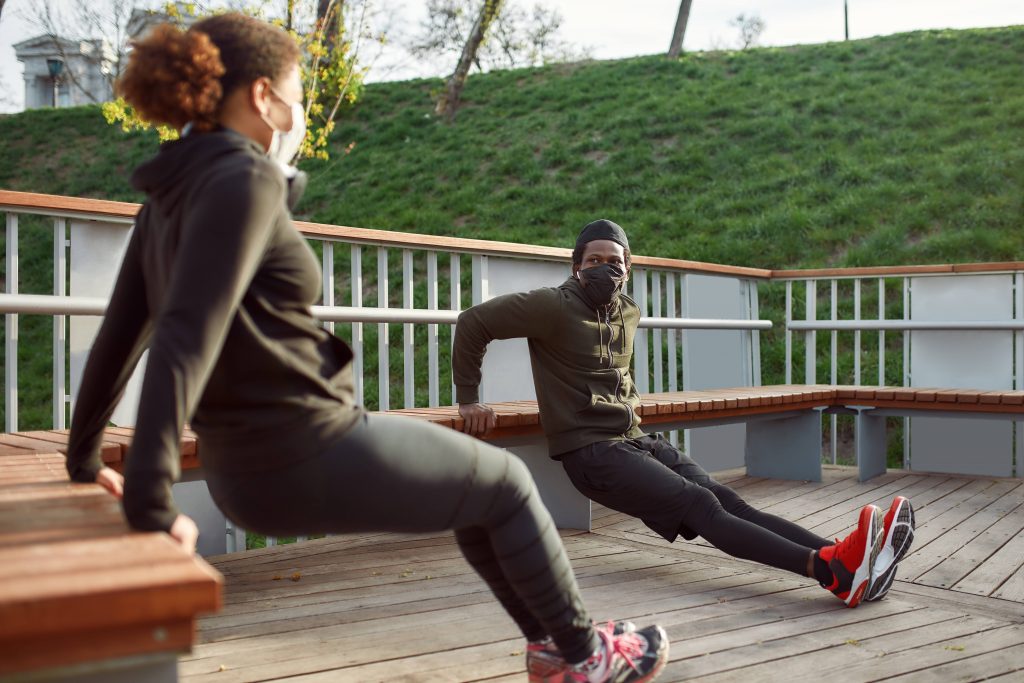-
Featured News
Rehabilitation after COVID-19

For some patients who have had COVID-19, symptoms of the disease may last long after the infection is over. These “long haulers,” who have what is known as post-COVID syndrome, may need rehabilitation to return to daily activities or work. To help these patients, Mayo Clinic has launched the COVID Activity Rehabilitation Program, or CARP, to help patients return to daily life and work. Dr. Greg Vanichkachorn, a Mayo Clinic preventive, occupational and aerospace medicine specialist, leads the CARP program, and he answers some common questions:
What are the symptoms of post-COVID syndrome?
"I would say that the most defining feature that we see, for these patients, is fatigue. And not just any fatigue, but a profound fatigue. So, for example, folks will say: 'I take a four to five hour nap after doing something as simple as doing the laundry or taking a one block walk.' It’s just amazing how wiped out folks can feel with just a little bit of activity. I would say that the second symptom that we see quite a bit is shortness of breath, which would make sense. We know that COVID can cause long-term changes in the lungs, like lung diseases and so forth, and that can lead to long-term dyspnea. So that pops up quite frequently. We also see headaches, believe it or not. In about 30% of folks will complain of some sort of neurological long-term complaint, whether it be a headache or dizziness or weakness. But headaches seem to be definitely a part of this picture."
Does post-COVID syndrome only affect people who had severe disease?
"We have seen this occur in folks that have had no problems managing their symptoms at home or having mild symptoms, or even seeing patients actually get worse as time goes on, about two weeks after their infection. There does seem to be a relationship also with age, and that could reflect that perhaps individuals are just more sensitive to the infection as we get older, which, of course, we’ve seen in the news. But, again, anybody can get this. I think that’s the takeaway point for this. We’ve had individuals who have been in great health prior to their infection, and they have also had difficulties in bouncing back."
Watch Dr. Greg Vanichkachorn discuss post-COVID syndrome:
Journalists: Sound bites with Dr. Greg Vanichkachorn are in the downloads at the end of the post. Please courtesy "Mayo Clinic News Network."
What is the goal of the COVID Activity Rehabilitation Program?
"It is important to note that CARP is not just for folks who are just trying to get back to work, but for everybody who is just trying to get back to their baseline life. And I highlight that because it’s going to be different for everybody, as some folks come into this as marathon runners, some folks come into this as commercial airlines pilots, some people just want to get back to being able to walk the dog around the block. And we work with all of those individuals to understand what their goals are."
How long does recovery from post-COVID syndrome take, and do patients fully recover?
"This is also new, and we are essentially building the airplane while flying it at the same time. Our treatments are guided by our previous experiences, again, with the Middle Eastern Respiratory Virus as well as SARS. But I can tell you anecdotally, at this point, that patients are very much enjoying the program. They are seeing benefit. They are reporting better endurance with activities, decreased dyspnea and slowly getting back on their feet. We have had individuals get back to work through the programs. Fortunately, no one has become stuck in this situation, which I’m happy to point out. Most patients are recovering, I would say anywhere from about six to 12 weeks after the onset of their infection."
Information in this post was accurate at the time of its posting. Due to the fluid nature of the COVID-19 pandemic, scientific understanding, along with guidelines and recommendations, may have changed since the original publication date.
For more information and all your COVID-19 coverage, go to the Mayo Clinic News Network and mayoclinic.org.







